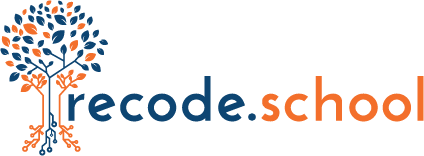More segregated today ...
Whenever I tell students or, really, anyone that our schools are more segregated today than during the Civil Rights era, they are always shocked. But, that is our reality. We need to own that and, more importantly, we need to overcome the fear that underlies this challenge.
Now, I'm exceedingly proud to say that STEAM Academy is a core part of the solution for Fayette County Public Schools and Lexington, Kentucky. Students of all races are doing pretty well at STEAM but most importantly we embrace a culture that values, instead of fearing, diversity. Kids understand that peers that are different than them (on many aspects) actually make their own lives better and richer too. That kids from all backgrounds are talented and skilled and have something to offer our CommonWealth. We are not perfect, nor are we particularly close to it. But, we are trying to honestly work for the betterment of all kids on the assumption that when everyone has chances at success we are ultimately all more successful together. Also, for those in Kentucky, you should take some pride in the fact Jefferson County Public Schools has done their best to keep the school desegregated as the video shows and this article praises.
Moving forward, we need to be more honest with ourselves as a city, a state, and a nation ... and that starts with being honest with ourselves as parents. We make lots of choices for our kiddos in what we believe to be their best interest. But, those choices are structured within our own world-views. Thus, if we view the world outside our bubble as something to be feared, then our kids' lives will driven by fear ... and that same fear will set in within them, in various forms. But, most alarmingly, we are structurally limiting our children's understanding of the world as a whole. That lack of understanding of the bigger picture is a massive roadblock to their future success in a global, connected world. Thus, at the core, all we as parents really need to do is shift our mental model from fearing things outside our bubble to exploring and embracing them. That subtle shift is the remedy. A parent doesn't need to embrace every single aspect of our society, but start with exploration instead of fear and then decide.
Second, we have to understand, embrace, and come to terms with the fact that our school systems are designed to perpetuate the status quo. Deep in the design of the technology of schooling (largely designed around 100 years ago) are assumptions and mechanisms that separate and ultimately reinforce our fears. Few in these systems have ill intentions, but we all in these systems contribute to the continuance of systemic segregation. In Kentucky, the gaps between learners at kindergarten actually widen at graduation (proud to be part of the Prichard Committee work to highlight this). In a majority poverty state like Kentucky, chances are if you start from poverty you will be stuck in poverty. School is less a solution than a reinforcer. Thus, schooling presently is generally not the great leveler that equalizes as we hope, but rather the systemic hardening of the mold cast when a child is born. The promise embedded in a child on the first day of school is frequently all but eliminated on their last.
As educators, we must combat the notion that helping one child is holding back another. That we must "track" kids based on their compliance. That a school willing to tackle learning deficiencies is a "bad" school. That a child acting out is behaviorally disordered and must be pushed aside. And, a thousand other notions and choices that live and are perpetuated within the code of schooling. I love spending time (and getting paid) changing that code, but it is something that will take many of us working on together over years to recode. STEAM is a start, as are many other models, but to go further will take even more courage and collaboration.
While this might feel daunting, keep in mind that two generations ago, our grandparents as a people (willing or not) took real and legitimate steps to make us a less segregated society. They reset our norms, passed new laws, and built new structures. We can do the same. That was a hard time filled with hard conversations, lots of public outrage, and, critically, bold leadership. I think we can get back being a bold people moving toward justice, but it starts with being more honest with ourselves and being more honest about our systems. We have to stop pretending that we are better than our ancestors and, like them, just get to work making this a better world.







